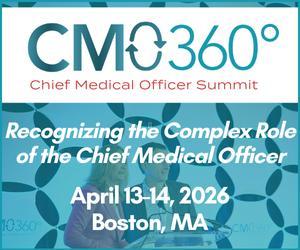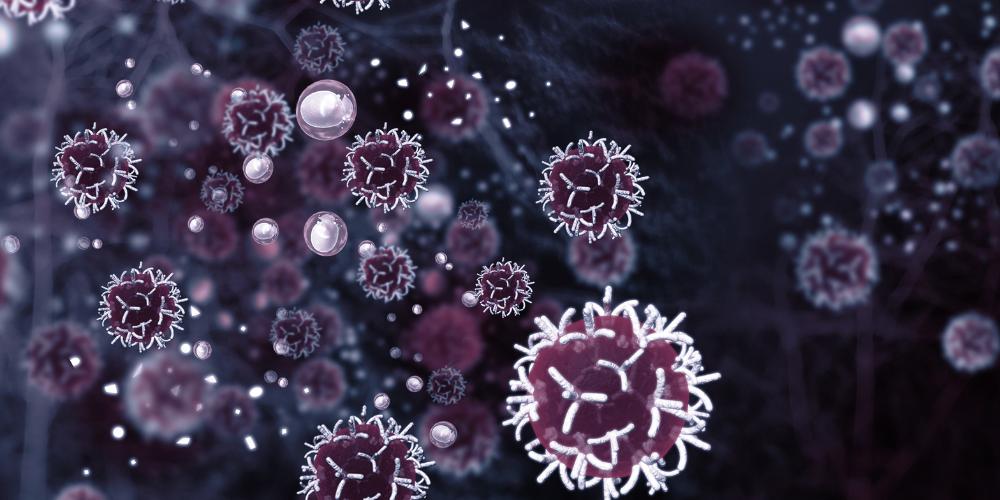MGH Cancer Center Breaks Down the T Cell to Better Understand Immuno-Oncology
Marcela V Maus, MD, PhD, is putting her lab’s focus on understanding the T cell and looking at cancer through the lens of immunology to understand the drivers of cancer. She is Director of Cellular Immunotherapy, MGH Cancer Center and Associate Professor, Harvard Medical School.

What is the focus of the Maus Lab in immuno-oncology right now?
We are interested in the biology of T cells and how we can optimize T cells to use as therapeutic agents for cancer.
We know that T cells are incredibly powerful and incredibly potent. We've all seen incredible data in patients with leukemias, lymphomas or multiple myelomas, all of which are hematologic malignancies. We're trying to improve responses in those diseases and extend beyond those diseases. We are trying to figure out what makes solid tumors different from liquid tumors and how we can engineer T cells to have that same level of impact in solid tumors.
How do you think the approach of your lab is unique or different to how other labs might approach similar work?
We're immunologists and we're interested in immunology in the setting of cancer. We've traditionally defined cancer by an anatomic organ. There is breast oncology, GI oncology, hematology oncology, etc. There is a shift – now that we understand so much more about what drives cancer molecularly – to think about cancers in a different way, in terms of what their molecular drivers are.
We are immunologists who are doing cross-boundary work within oncology, because immunology is an organ system that cuts across traditional clinical boundaries. There's allergy and immunology, there's rheumatology, there's oncology and infectious disease. The immune system is just so important for so many different things in clinical medicine. Oncology is just like one subset of clinical medicine.
"There is a shift – now that we understand so much more about what drives cancer molecularly – to think about cancers in a different way, in terms of what their molecular drivers are."
What have you learned in focusing on the drivers of cancer, versus site of origin?
For us, our world revolves around the T cell. And so how do we use the T cell? And what areas are there of overlap and what areas are not? So for example, one thing we do is we sometimes lump pancreatic cancer and ovarian cancer together in the sense that they have some of the same target expression that T cells can see. They're in the same abdominal compartment.
If we're using mouse models, that ends up being similar. Even though in the human case, they are treated by different physicians and with different chemotherapies. But in that T cell engineering sense, to us, they behave somewhat similarly.
You led research that found a link between the interferon gamma (IFN-γ) pathway and CAR-T cell success in solid tumors. Can you tell us about that study?
We wanted to understand if and whether there were specific reasons for solid tumors being intrinsically resistant to T cells. Was that even a possibility? And it turns out that it was. What was very surprising is it had to do with this IFN-γ receptor signaling. When the T cell encounters a solid tumor, the T cell gets activated. One of the responses it has is spewing out IFN-γ.
That's actually necessary for the tumor to sense through the IFN-γ receptor for it to have a productive engagement with the T cell. If that IFN-γ receptor is not there, the T cell walks away thinking it's done the job and finished with the solid tumor, but the solid tumor is not actually dead.
It turns out that there's this whole building up of the engagement: the T cell recognizes the solid tumor, it makes IFN-γ. The solid tumor senses the IFN-γ through its receptor, and it upregulates adhesion molecules that will make it stick to the T cell longer. That stickiness and length of contact is important to actually enable the kill to happen. If that adhesion doesn't stay around long enough or strong enough, the T cell can walk away a little bit too early, without actually finalizing the kill of the solid tumor.
"We wanted to understand if there were specific reasons for solid tumors being intrinsically resistant to T cells. It turns out that it had to do with IFN-γ receptor signaling."
What questions are left after learning this?
What we don't know is how often that happens in the setting of patient care. We do know that with checkpoint blockade, loss of that pathway, IFN-γ receptor pathway, and its downstream molecules like JAK2, are actually a mechanism of resistance. We think this doesn't apply just to CARs. It also applies to checkpoint blockade and other therapeutic areas where the T cell is the one you're relying on to do the kill.
What would be the next step/response, after this research?
There are a couple of strategies. One is to use pharmacologics to change the biology of the solid tumor, so that it can be primed for the T cell or so that it becomes better able to engage the T cell when necessary. The other approach is to use what we call a genetic approach. In the lab, we can engineer the solid tumor to test various strategies. That's very useful, and it'll help us understand the best way to engineer a solid tumor is. But you cannot do that with patients.
What we're focusing on instead is trying to figure out how to engineer the T cell to not need that feedback loop.
You also worked on reversible on/off-switch chimeric antigen receptors, controlled by lenalidomide. What were the implications of that work, particularly for toxicity and patient experience?
Right now when we put a CAR-T into a patient, biology takes over. That cell will grow and shrink and divide relatively autonomously. It would be nice to be able to have some form of control of how much contraction and how much expression there is of the CAR or of another amplifier, like a cytokine.
That's what we decided to do using lenalidomide, which is a small molecule drug. When you use a degron or degradation domain, the lenalidomide will target the protein for degradation. It's very reversible. If you give the drug, the CAR gets degraded for the next 12 hours. But then if you don't give another dose, they will come back up.
It gives you tight control over how much CAR is expressed, even though at the genetic level, or the DNA level or the cell level, it's still there. But at the protein level, the active form of it can be tuned very carefully and very tightly.
"To be able to tune the response very carefully is a platform tool that can be used to enable higher risk/higher reward."
What is the future potential for that research?
It could be used in the current CAR, so that you don't have these wild swings in how much expansion and contraction there is. We could also potentially use it to engineer CARs that have like a second domain or a second gene that is a little riskier. For solid tumors in particular, you might want to add in a little more jet fuel into the CAR.
But if you have no control over it, it's a higher risk. To be able to tune the response very carefully is a platform tool that can be used to enable higher risk/higher reward.
Does that have any bearing of durability of response?
It's possible; we didn't test that directly. But there is nice work, such as from Dr Crystal Mackall’s lab for example. She used a small molecule, dasatinib, that basically turns the T cell off for a little bit. T cells like to have a “Go” signal, and then they like to relax.
They need to take some time off and rest. If you're constantly pushing the T cell, it'll become exhausted and sometimes it'll die off. If you have these periods of rest, you can use something like dasatinib, which Dr Mackall showed. That will, of course, affect all T cells. If you just want to have this period of rest for the CAR T cell, theoretically we could do that with lenalidomide.
"We have a whole clinical service of patients who are getting CAR-T cells; that didn't exist five years ago. We know that this can work on a clinical level. We know that it can work at a large-scale."
You have been in cell therapy for a long time. How have you seen the field grow?
When I was in graduate school, we were trying to understand how we can keep T cells growing. We were starting to look for ways to keep that going, because we knew that we would need to get to reasonable numbers and persistence, if we were going to have a curative effect in either infectious disease or in cancer.
At the same time, there was also all this work being done in HIV as well: understanding the biology of HIV, and then using HIV and viruses as tools to get DNA and RNA into a cell. At the time, the idea of using a virus to get new material into the cell was just being explored. The notion that you could gut the genetic material of the virus and just use the part that can be used as a shuttle: that didn't come out until roughly the early 2000s.
It was pretty soon – maybe five years – after that that people were engineering receptors and using vectors to put them into T cells, and then put those T cells into patients. That's warp speed.
From your vantage point, where are we on this timeline?
I see us as at the end of the beginning. There's clinical data, there are commercial products. Patients are getting this. We have a whole clinical service of patients who are getting CAR-T cells; that didn't exist five years ago. We know that this can work on a clinical level. We know that it can work at a large-scale.
I think it needs to grow in two areas. One is that, right now, a lot of patients who could benefit from CAR-T are not getting them. It’s hard to know all the reasons why. Some of it has to do with our healthcare system and health insurance, but some of it is geography or the various other challenges in our system. So how do you make it more accessible? And second is that, right now, there are a limited number of diseases where CAR-Ts are effective. On the scientific side, we need to get to that proof of concept in more malignancies and in other diseases.
For more information on immuno-oncology, visit www.io360summit.com









